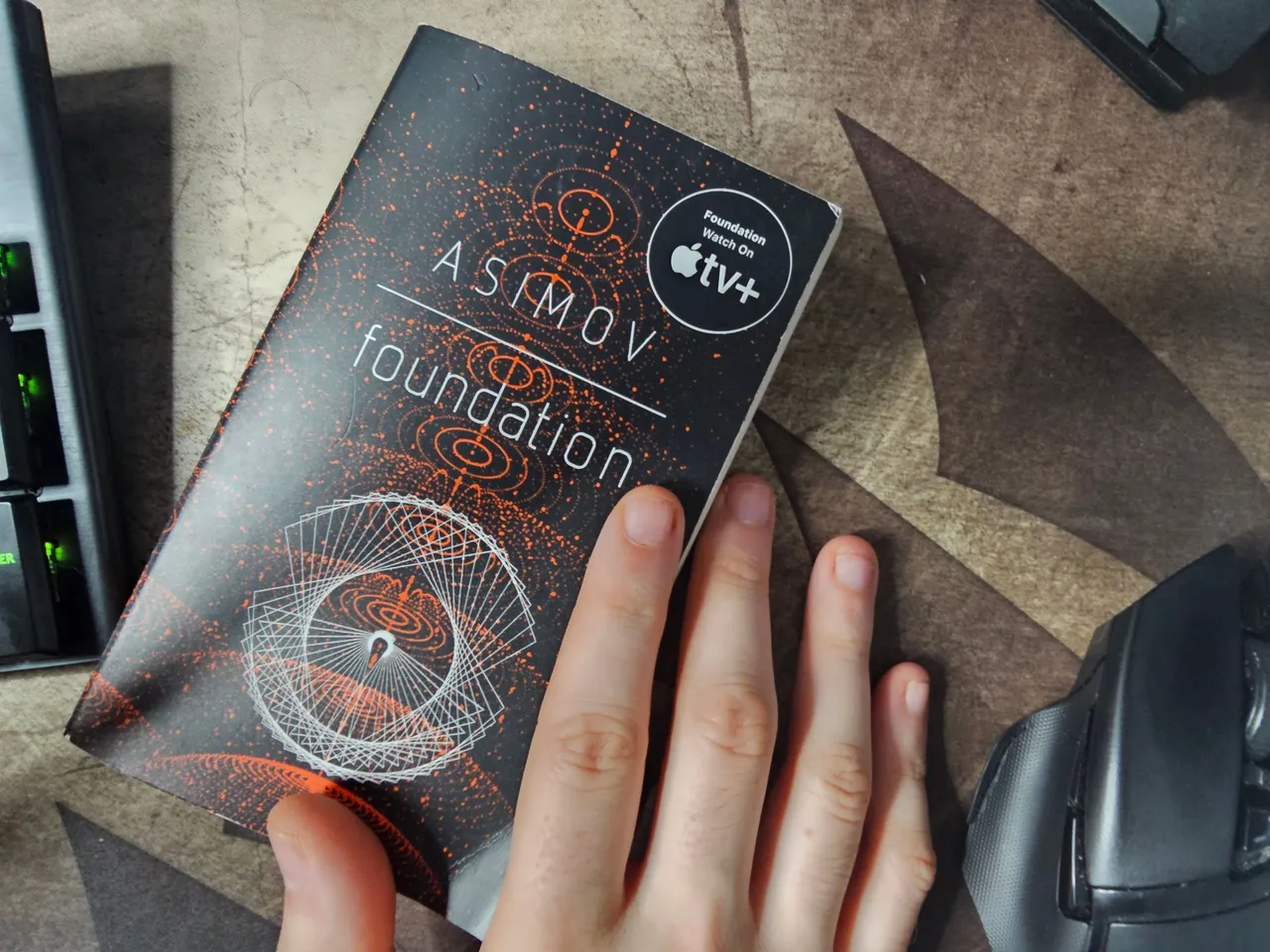As a life-long reader of speculative fiction; it has taken me thirty five of my years to pick up a novel written by the grandfather of the genre, Asimov. Alongside my recent read of Snowcrash; it represents the first physical book purchase I've made in many years, and it is certainly not one that disappointed.
First: I have to realise what I am getting myself into. Foundation is the first of a series of books and while not on the word count of Wheel of Time, Game of Thrones, or other lengthy, multi-volume epics; this is the biggest reading commitment I've made for a very long time.
I went in blind, knowing only that this was a highly lauded series; and I am very pleased to report that my blindness did not lead to any modicum of disappointment.
Foundation opens with the introduction of an apprentice to a great "scientist", who has figured out this thing called "psychohistory". It allows the forecast of future events by using statistical analysis and the variables that influence humanity en masse. The prologue to the second book in the series explains this quite well, in that "to predict the actions of one man is difficult, to predict the actions of billions is something else all together".
I can't help but get a niggling feeling, one book into the series, that this is also a commentary on how governments and other organisations of authorities such as religions; intellectual institutions can carve out a desired future history, based on their influence.
In any case, across about three hundred pages, in Foundation (only the first book!) two hundred years pass by in the empire, as we move from interesting character to interesting character, of whom we're only with for a few chapters at a time, before the perspective catapults us forward 50 years further.
Asimov treats the viewer as a fly on the wall along the corridors of power, as a burgeoning "Foundation" world (tasked with cataloguing all knowledge within the vast galactic empire) is tugged in various directions by factions vying for power. The Foundation is tasked with one thing alone, prevent centuries of barbarism and chaos, by preserving knowledge.
The Foundation is not unique, in fact; there are two, one at each end of the galaxy, and their technological superiority as the Empire's influence begins to decay at the fringes of the galaxy shows them as a burgeoning power; transforming from a group of intellectuals and scholars, to bands of merchants; supplying technology and amassing wealth through trade.
It is very easy to see from where modern epics such as Game of Thrones, or the more historical Dune got their influence after reading only a scant few chapters of Foundation. As you delve deeper into the book, you appreciate the political intrigue which is masterfully laid out in what feels like a series of short stories that build a deep, enormous cast of characters that play through role through the march of history.
There are many more books in this series for me to read, and perhaps; eventually, a TV series to watch, as is emblazoned on the cover of my copy; allegedly, this is a series of on Apple TV+. I might watch it, I might not, but I know for sure that I am very keen to read the next title in the series, and am looking forward to appreciating it just as much as the first.

The book, and my hand
Want more content from me?
Witness my futile efforts to play my Steam Game collection in alphabetical order.
Are you aware that I love photography? Check out my work in a collection.

If you want to see my Splinterlands antics and rants live, Find me on Twitch
If you prefer sleeping in your designated time zone, go watch replays on YouTube.